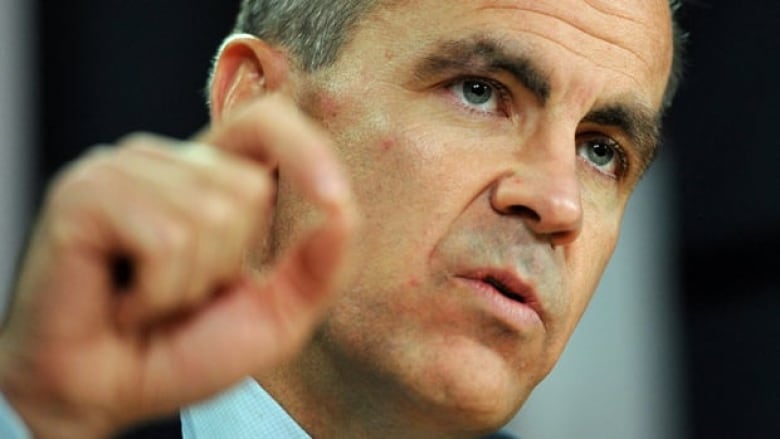Carney warns credit crunch risks recession

The global economy is threatened by a lack of financing for worthy businesses, Bank of Canada governor Mark Carney warned Tuesday.
In his first speech since being named by G20 leaders to the head of the international body in charge of banking reform, Carney stressed to a room of London bankers the need for quick action to increase global liquidity to avoid sluggish growth for several years.
"Over the past five years, global liquidity has swung wildly from the exuberant surge that fed a cavalier 'search for yield' … to the severe retreat that prompted the desperate 'rush for shelter' in the aftermath of Lehman," he said.
Liquidity can often be a nebulous concept. But Carney defined it as "the ease with which financial institutions, households and businesses can obtain financing."
If the conditions aren't in place to allow people and businesses who need money to use it wisely, few other policy changes will matter, as the global economic system would seize up.
"Over the medium term, the continuation of such extreme liquidity cycles could ultimately threaten open capital markets and a free trading system if not better addressed," Carney warned.
In the highly technical speech, Carney also offered hints of how he will use his three-year posting at the Financial Stability Board to try to end the boom and bust liquidity cycles that plague the global economy.
With private liquidity drying up over concerns about sovereign debt in Europe, Carney said it is again up to the public sector, in particular central banks, to ensure there is sufficient credit available at reasonable terms for businesses and households to continue to invest and spend.
Just as it did in the summer and fall of 2008, a lack of available credit has already pushed Europe into what he said will be "at least a brief recession."
Most central banks, international bodies and private sector economists have already begun assuming a widespread slowdown in Europe into their projections. The impact of that will likely be felt beyond Europe. "The effect on the real economy will soon be felt," Carney said.
Slower growth
In Canada, Carney last month projected the economy would slow to sub-one per cent growth in the last three months of this year, half of the expected rate of the third quarter.
The long-term answer to these wild fluctuation in global liquidity is enactment of financial system reforms proposed by the G20, which the FSB will help monitor, Carney said.
The reforms, if successful, will help moderate the cycles and help smooth out global liquidity flows by making financial institutions more sound, with greater capital reserves.
"Measures that increase the resilience of financial institutions ... will reduce the probability and frequency of a sudden liquidity shock," he explained. "Measures that reduce the procyclicality of the financial system will help stabilize global liquidity flows."